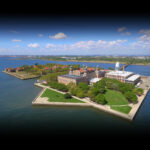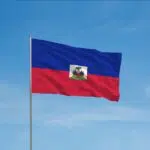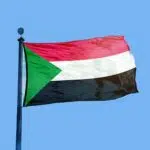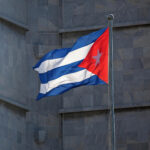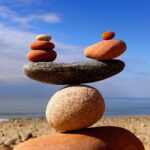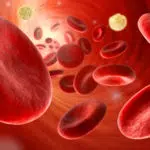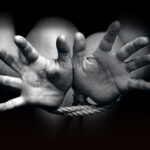Haitian Independence Day is celebrated annually on January 1. Haiti made history by being the first country in the Western Hemisphere to abolish slavery on January 1, 1804. Ancestors’ Day and Independence Day are commemorated on the first two days of the calendar year. January 2 honors the founders of the nation and the people who sacrificed their lives during the fight for independence. The world was shocked as the Haitian Revolution happened. They refused to believe that former slaves understood the depths of freedom any more than they did. Despite both the Americans and the French proclaiming that all men are created equal, they didn’t arrive at the natural conclusion that racial discrimination and slavery are gross violations of basic human rights. Haiti’s independence shattered the world’s understanding of liberty and freedom. The monumental event holds global historical significance and will continue for centuries to come.
History of Haitian Independence Day
In 1659, the French colony of Saint-Domingue — now known as Haiti — was established. The French colonists began setting up sugar and coffee plantations worked by imported bondsmen from Africa. By 1788, the island had over 700,000 bondsmen working in brutal conditions. As a result of overwork, lack of proper medical care, inadequate food, clothing, and shelter, the mortality rate far exceeded the birth rate. Thus, the colonial system in Haiti was described as one of the most brutally-efficient bondsmen colonies and France’s most profitable colonial possession which they called ‘The pearl of the Antilles.’
In 1791, the long-seething tensions between the bondsmen and the French planters reached a bloody climax. On the night of August 21, 1791, bondsmen started murdering plantation owners and destroying plantations. In two months, 4,000 white people were killed and 180 plantations destroyed, the loss of property amounting to about two million Francs. In September of that same year, the whites began organizing themselves into militias and struck back, leading to the loss of about 15,000 black lives. At this point, the bondsmen demanded freedom from slavery and not independence.
On February 4, 1794, the French National Convention declared the abolition of slavery in all French colonies. However, this didn’t bring about instant transformation as the French later attempted to reimpose slavery, leading to another revolt in 1802. On November 18, 1803, the final battle that secured victory for the bondsmen occurred, called the ‘Battle of Vertières,’ which marked the first-ever successful slave revolt to lead to the creation of an independent state.
Haiti proclaimed independence from the French colonial authorities on January 1, 1804. ‘Haiti,’ which in Taino means ‘country of mountains,’ was renamed under the direction of Jean-Jacques Dessalines from Saint Domingue. As a result, Haiti became the first independent nation led by a black majority in the post-colonial era and Latin America.
Haitian Independence Day timeline
The French colony of Saint-Domingue is established.
The Haitian Revolution begins with a bloody revolt on August 21.
Slavery is abolished in all French colonies by the French National Convention.
Toussaint Louverture drafts a new constitution for Saint-Domingue.
The Battle of Vertières brings about the first successful bondsmen revolt in history.
Saint Domingue declares independence from France and it is renamed ‘Haiti.’
The transatlantic slave trade is abolished in Britain, influenced by Haiti’s successful revolt against the French.
Haitian Independence Day FAQs
What was Haiti called in 1492?
When Christopher Columbus arrived in Haiti in 1492, he named it ‘La Isla Española,’ later Latinized to ‘Hispaniola.’
What race are Haitians?
About 95% of people in Haiti are of African descent.
What percent of Haiti is white?
In Haiti, whites and mulattos make up about 5% of the population.
How to Observe Haitian Independence Day
Learn more about the country
The rich and nuanced history of Haiti requires deep exploration and understanding. Take time out on Haiti Independence Day to learn more about the fascinating country,
Schedule a trip
If it’s within your means, plan a trip to the beautiful island and get a first-hand experience of the culture. Visit the remarkable historical sites and converse with the locals.
Learn the Creole language
Learn a few common words and phrases in Haitian Creole. You can learn how to introduce yourself or ask about the weather. You never know when it might come in handy.
5 Surprising Facts About Haiti
Voodoo is a recognized religion
Haiti is the only country in the world with Voodoo as a recognized religion.
Haiti has a record-shattering hospital
The Hôpital Universitaire de Mirebalais in Haiti is the largest solar-powered hospital in the world.
Haiti is the most mountainous Caribbean country
The most mountainous country in the Caribbean, Haiti’s peaks reach over 8,000 feet.
Cock fighting is an official sport
Cock fighting is a popular and lucrative sport in Haiti.
The Taino people are the indigenous people
The indigenous people of Haiti, already present long before the arrival of the Spanish and French, are the Taino and Arawak people.
Why Haitian Independence Day is Important
It ended oppression
Although there is nothing pretty about war, the light at the end of the dark tunnel was an end to the oppression and enslavement of black people. After years of brutal slavery, black Haitians were finally allowed to enjoy their freedom.
Haiti inspired other nations
From being the first independent nation in Latin America and the first post-colonial independent black-led nation in the world, Haiti was a source of inspiration to other nations. They inspired hope in other blacks worldwide and proved that no matter how long oppression lasted, freedom would prevail.
It shows what strength and perseverance look like
Haiti was forced to pay reparations to compensate plantation owners for losing their property (slaves) during the revolution. Haiti didn’t finish paying off the debt until 1947. Through all of these troubles, the nation remained steadfast.
Haitian Independence Day dates
| Year | Date | Day |
|---|---|---|
| 2025 | January 1 | Wednesday |
| 2026 | January 1 | Thursday |
| 2027 | January 1 | Friday |
| 2028 | January 1 | Saturday |
| 2029 | January 1 | Monday |










